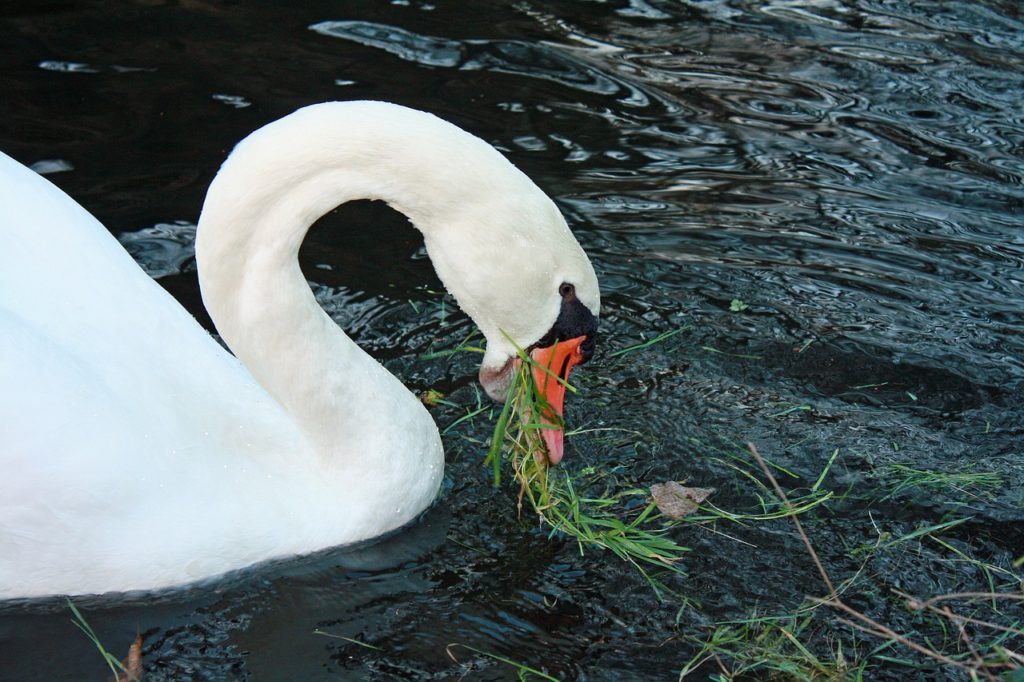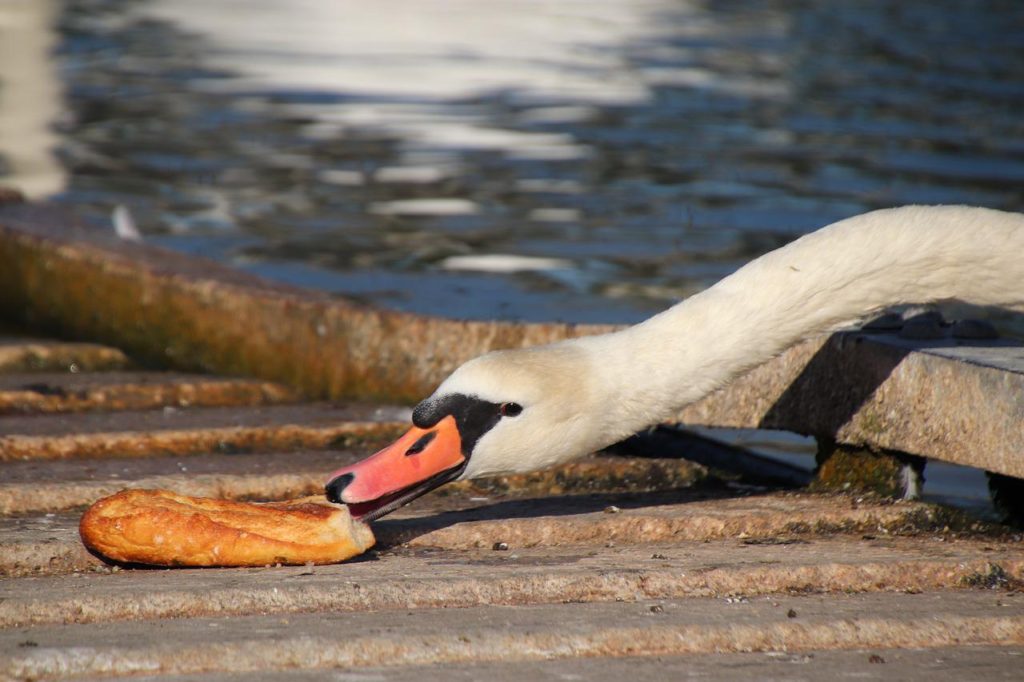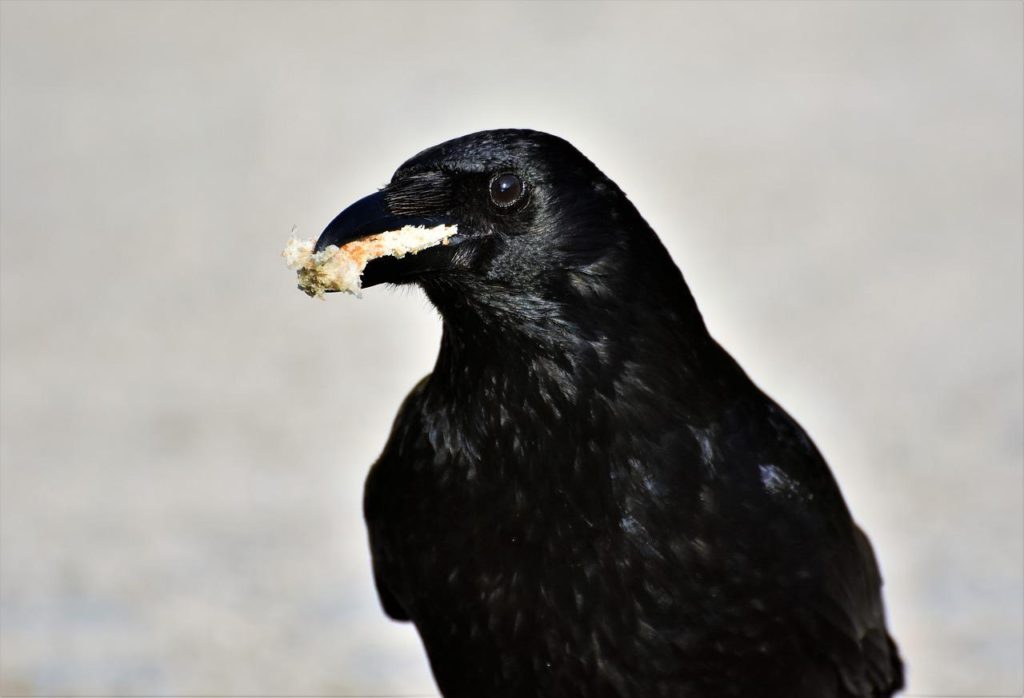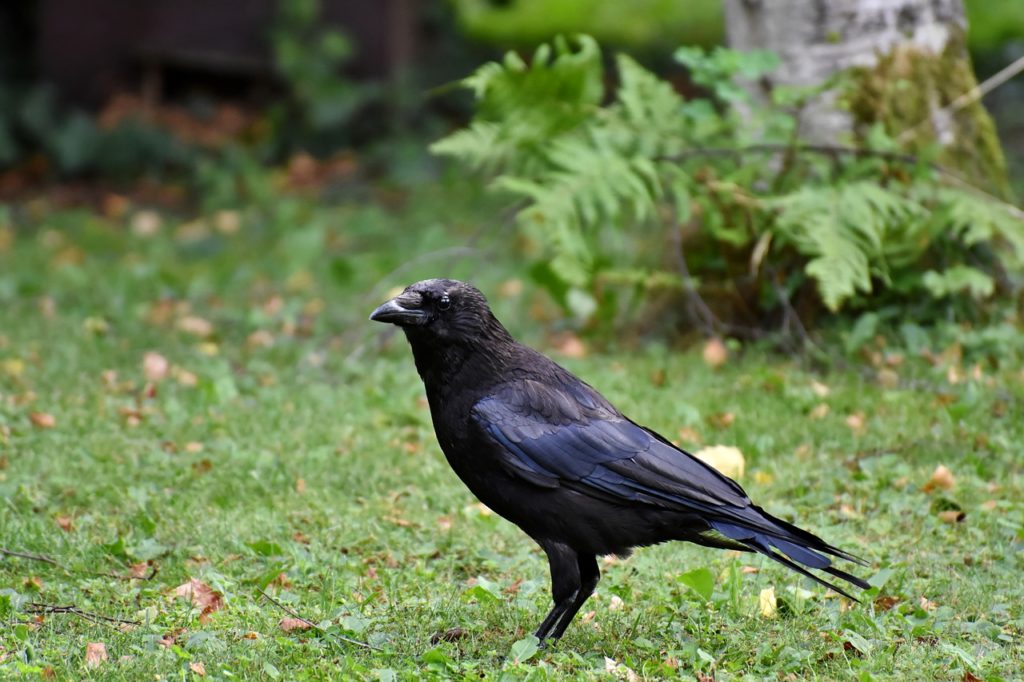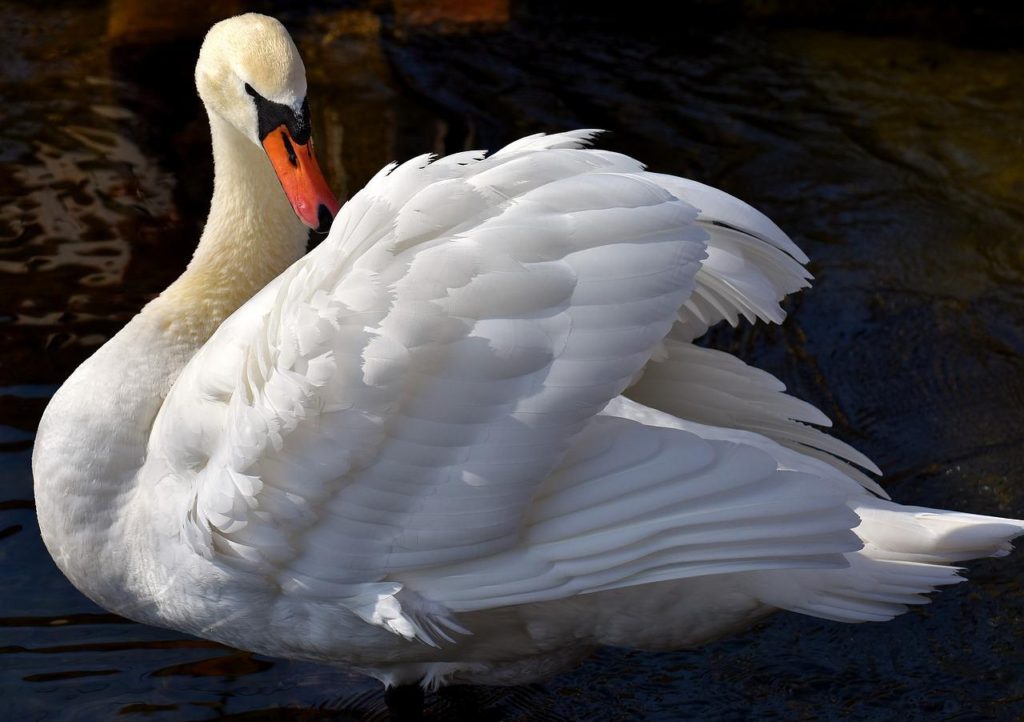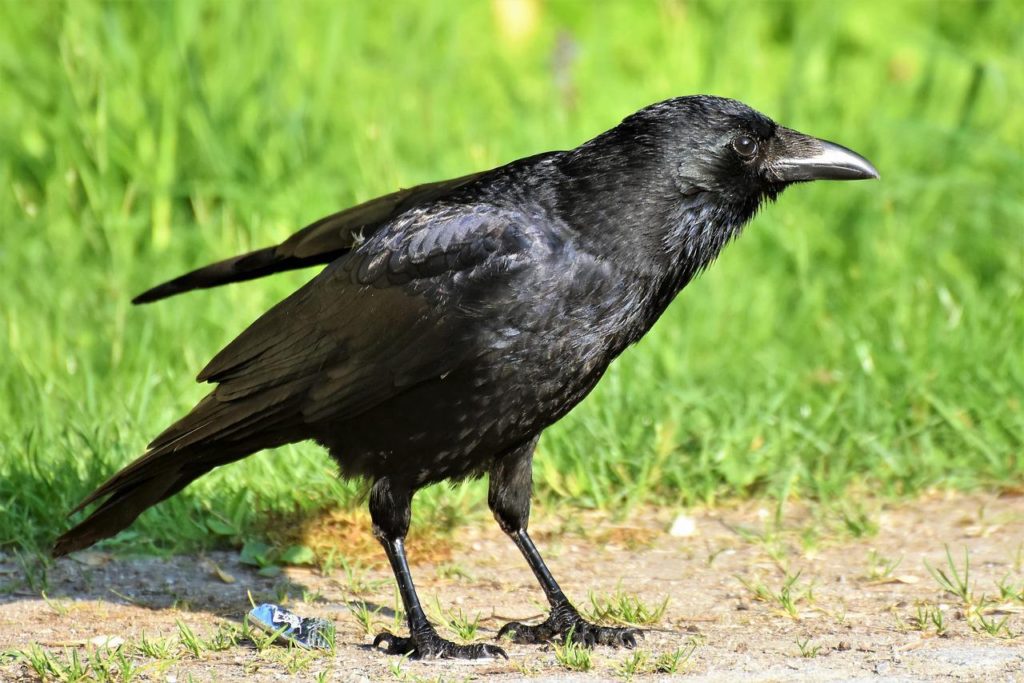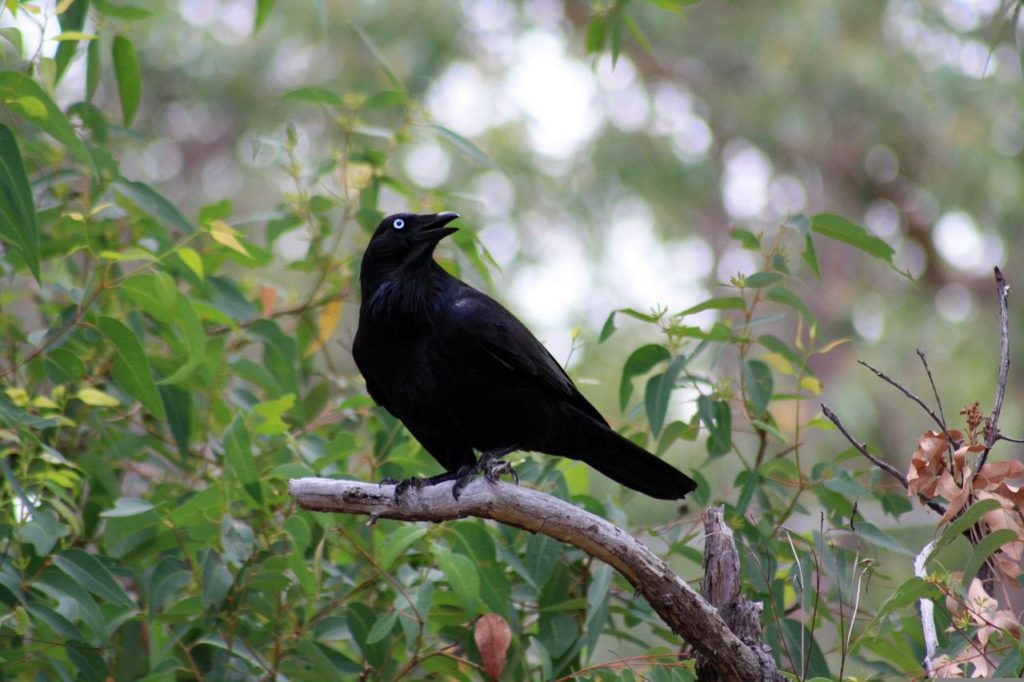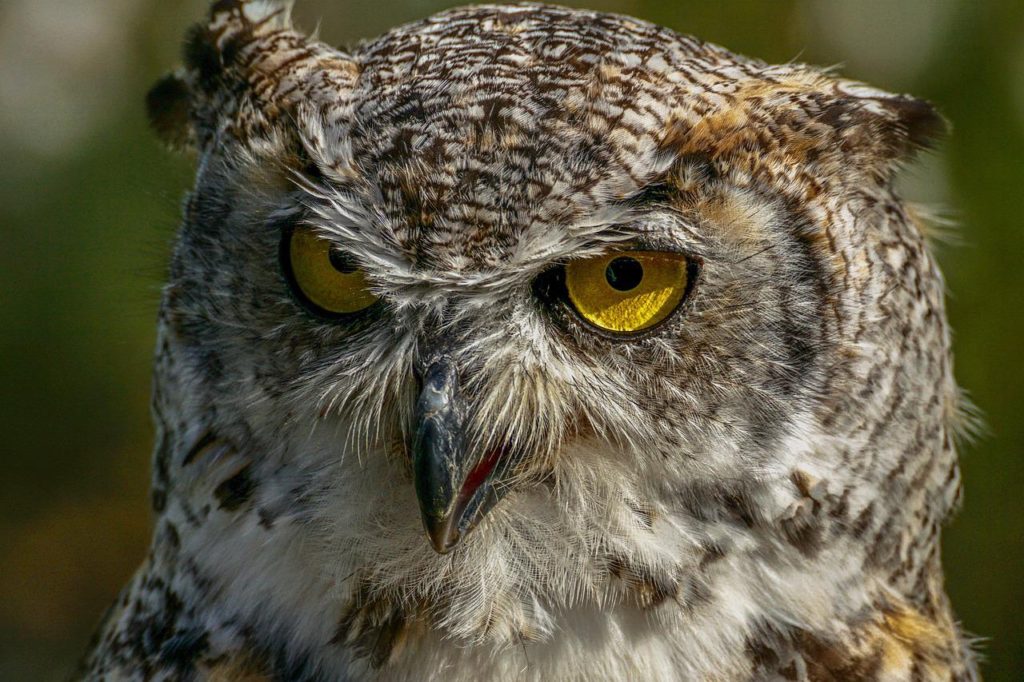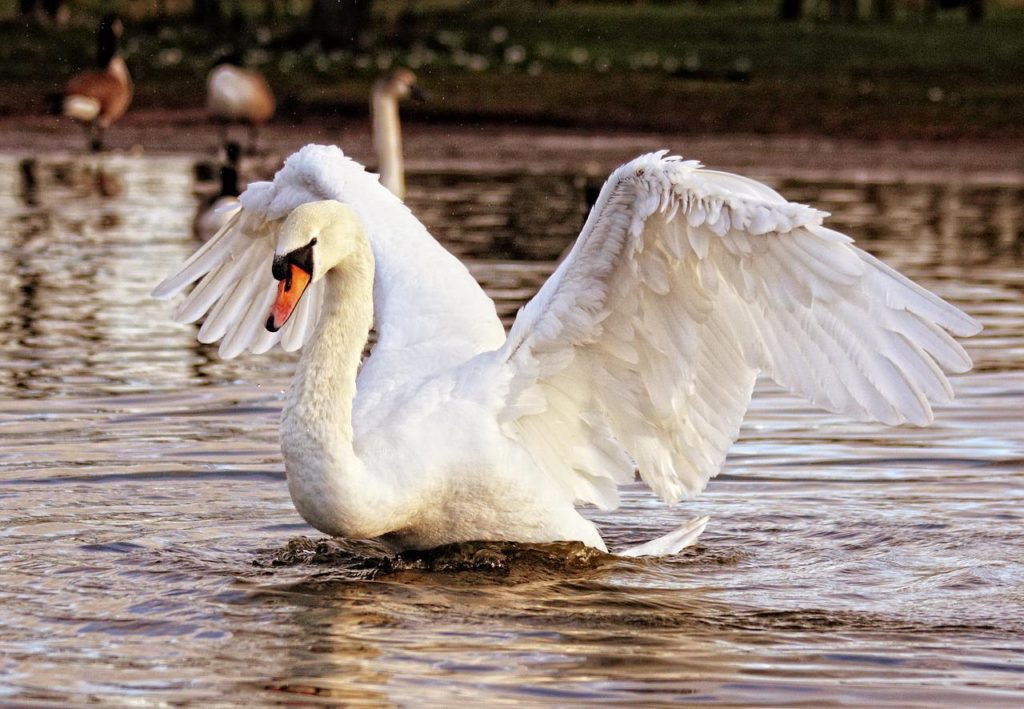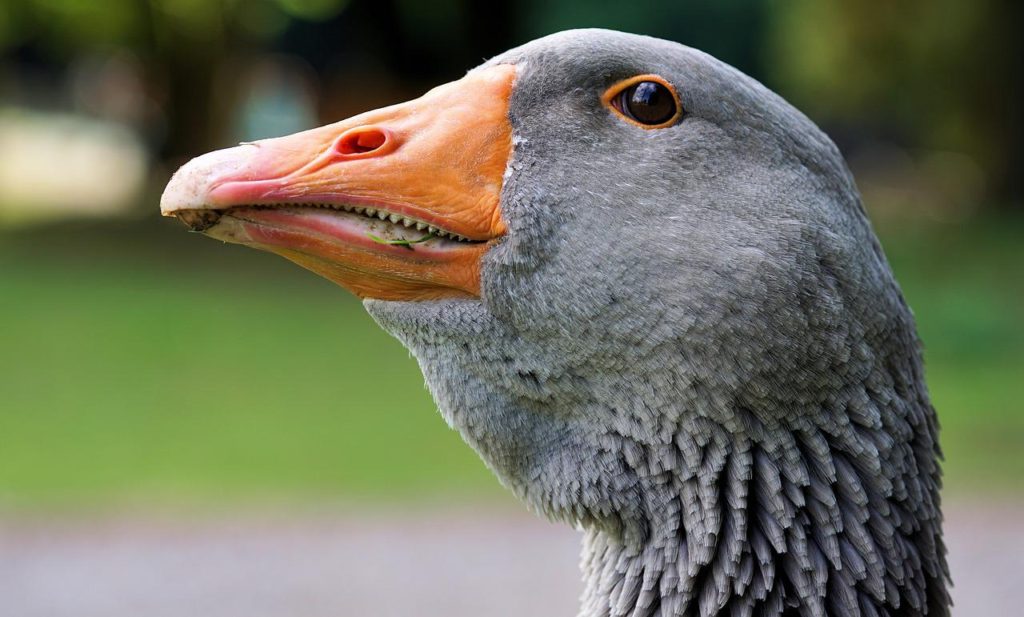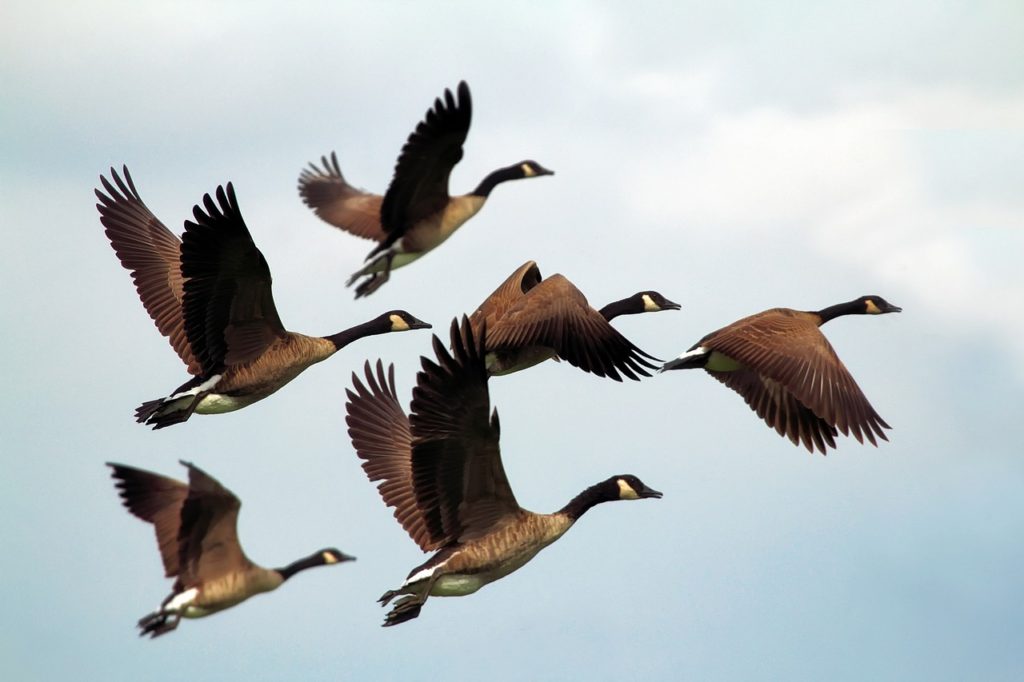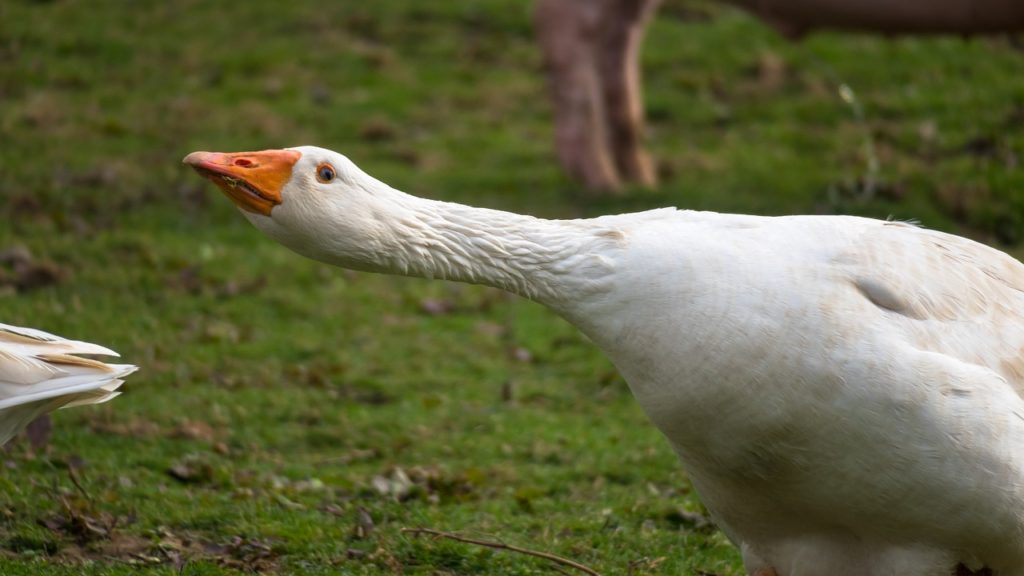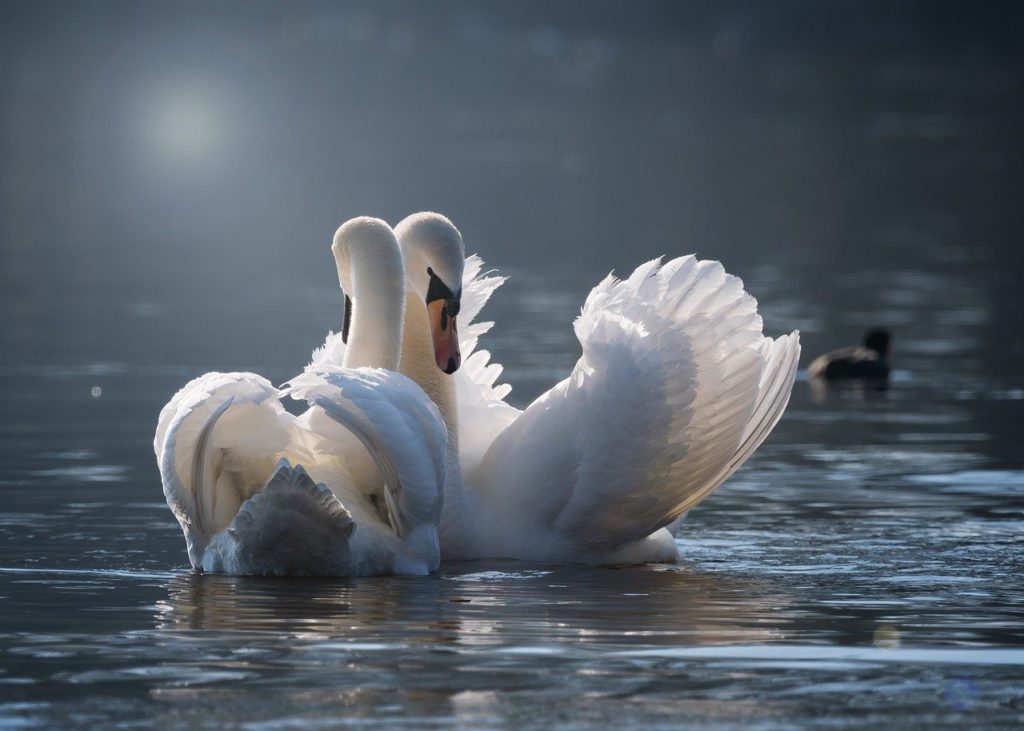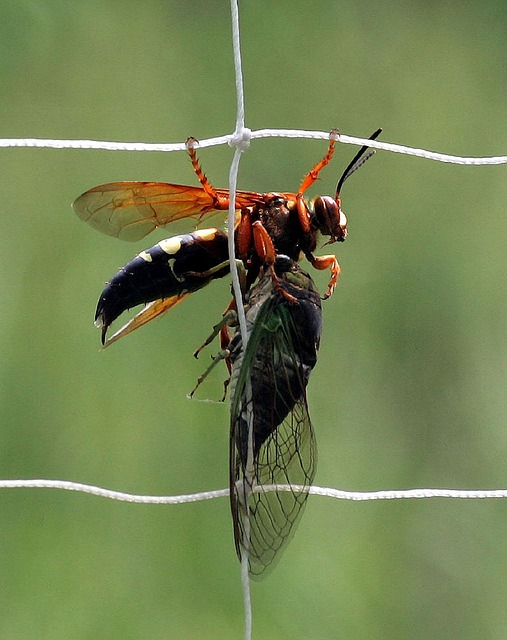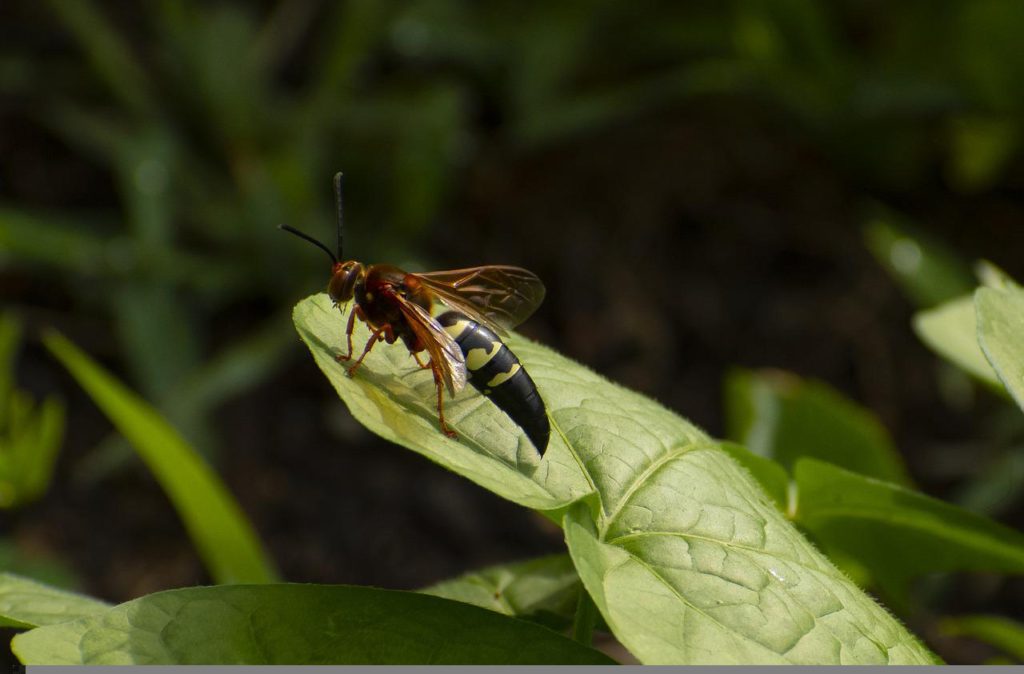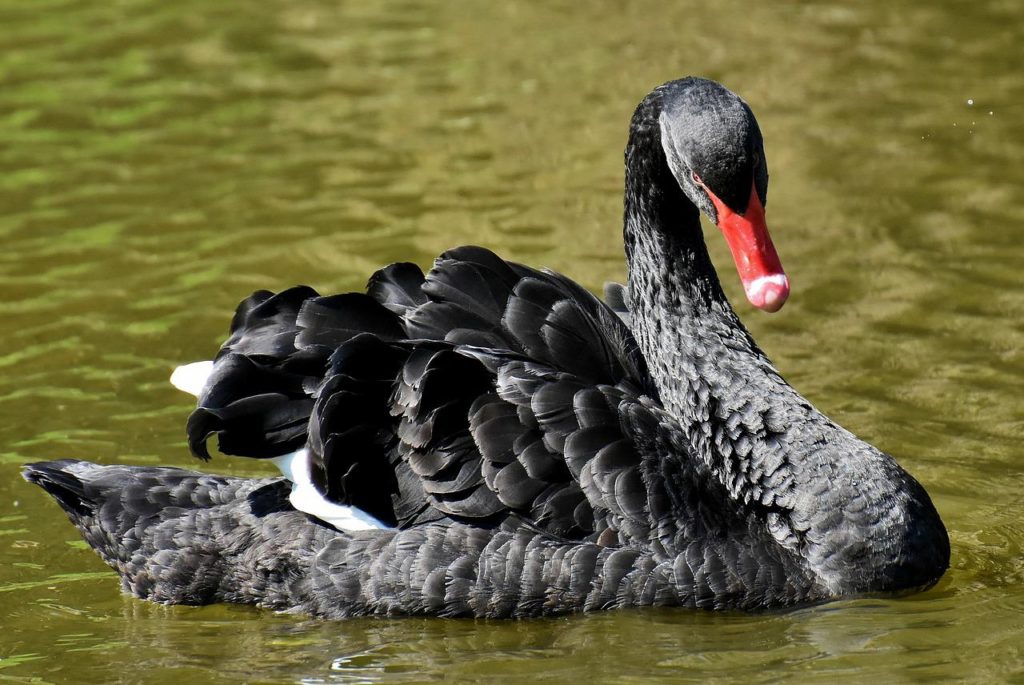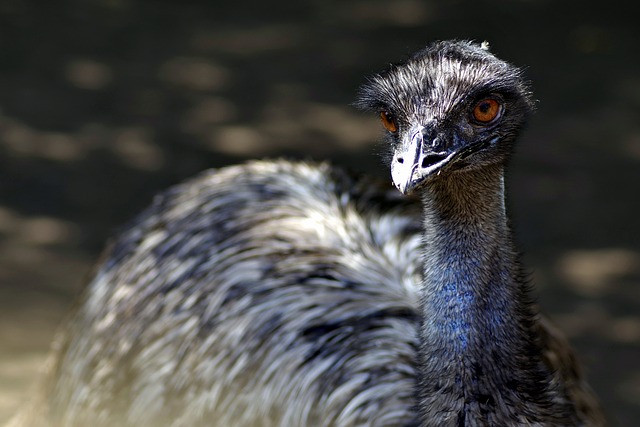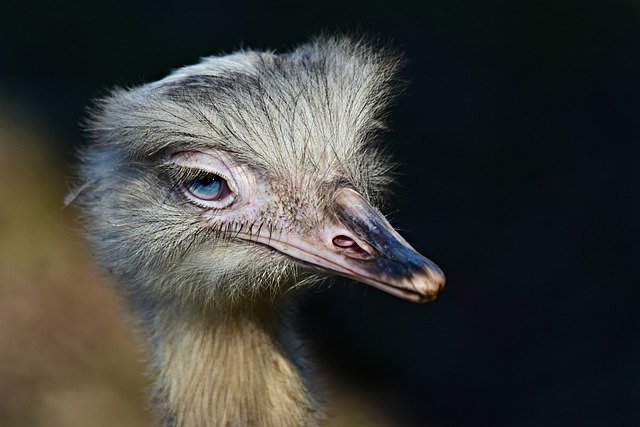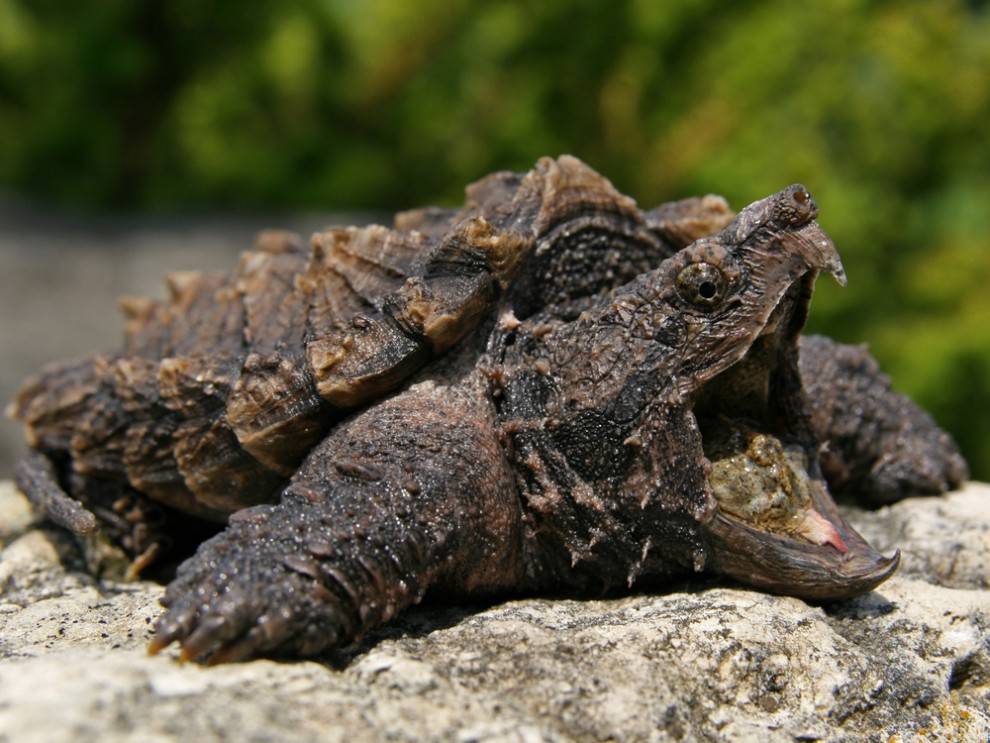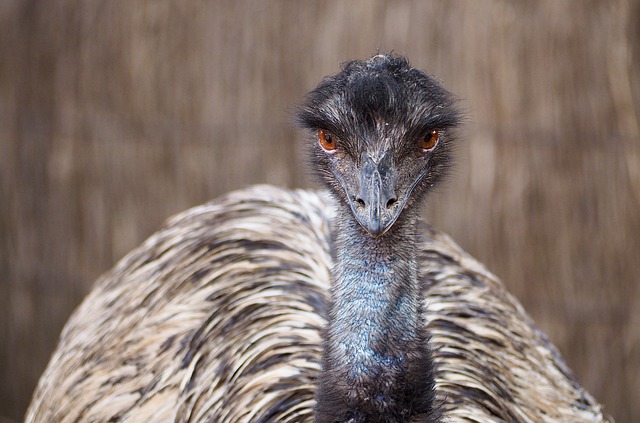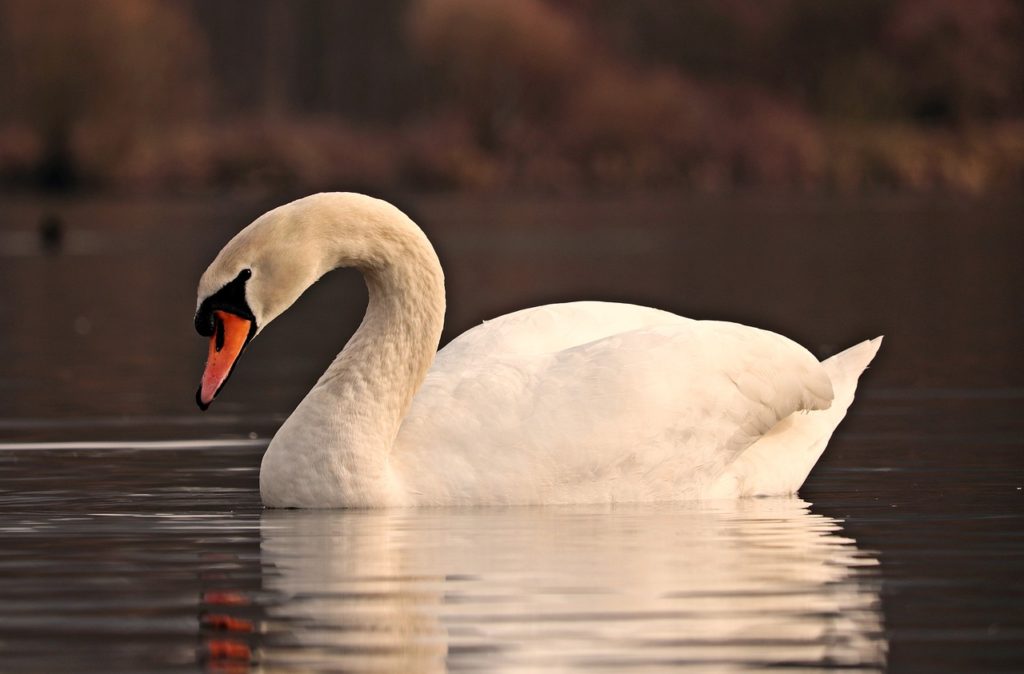
Swans are famously long-necked birds that are symbols of romance, love, beauty, and purity. Since these waterbirds have so many admirers, people often wonder about their eating habits, behaviors, and more. What do swans eat, anyway?
Swan Basics
Swans typically live in colder locations. Examples are North America, northern regions of Europe, and Asia. They reside on water in lakes, ponds, wetlands, bays, and estuaries. Swan species include tundra swans, mute swans, trumpeter swans, and black swans.
What Do Swans Eat in the Wild?
Swans generally are herbivorous. That’s why they consume plants above all else. Although they sometimes consume worms, frogs, fish, and tiny insects, they usually eat grass, fruits, and algae. Wild swan dietary staples include muskgrass, waterweed, pondweed, wild rice, and wild celery.
What Do Swans Eat in the Winter?
It can be difficult for swans to track down their dietary favorites in times of frigid temperatures. That’s why swans often seek out wintertime replacements including tubers and berries. Rye grass, floor brush, wheatgrass, lupine, grain crops, cranberries, and blueberries can all be part of the winter swan diet.
What Can You Give Swans to Eat?
Swans generally are able to find sustenance without the kindness of human beings. If you’re interested in helping these waterfowl, however, you can offer them foods that are normal and natural to them. These foods include corn, lettuce, grains, chopped carrots, lettuce, and leafy green vegetables such as spinach. Make sure to cut the leafy green veggies into little pieces.
How Do Swans Eat?
Swans tend to drink and eat food as they float on water. Since their necks are flexible and lengthy, they enable them to retrieve shoots while they swim. Swans lack teeth that enable them to crush their food pieces. They rely on gizzards. These muscular organs operate similarly to mammal molar teeth.
Gizzards turn food into a pulp and because of that simplify digestion. They do so by boosting food surface area. Swans consume grit that can grind their food items up well, too.
Do Swans Eat Fish?
As indicated previously, swans do sometimes eat fish. They typically eat fish without meaning to do so. Fish can cling on to the weeds they eat, after all. Immature swans or “cygnets” are no strangers to occasional fish intake, either. Swans in general tend to stick to consuming fish that are smaller.
Do Swans Eat Ducks?
Swans do not eat ducks. Some people say they have witnessed swan attacks on ducklings. These fights may be territorial rather than food-oriented, though. Swans that want ducklings to avoid their territories are thought to occasionally drown the young creatures.
While normally peaceful, they can be aggressive when they feel that their young or nesting ground is in danger. And because other birds know this and typically keep their distance, fake swans are used to deter other types of waterfowl such as geese and ducks from pools and ponds quite successfully.
Can Swans Eat Wild Bird Seed?
Giving wild bird seeds to swans in the water may not be the best idea. The majority of the grains and the seeds that make up wild bird seed will do no more than just sink to the ground in bodies of water. This may lead to all sorts of consequences as well. It may lead to the development of detrimental bacteria. It may even bring on riverbed blockages.
If you want to feed swans on terra firma, you can consider doing so using wild bird seed. You can sprinkle wild bird seeds over their surroundings. Wild bird seed isn’t only suitable for feeding swans. It can also be suitable for the feeding of geese, ducks, and wild birds overall.
Can Swans Eat Bread?
People often feed bread to birds. The truth is that swans are more than willing to consume this food item. Although bread feeding is preferable to allowing a swan to remain hungry, it’s not ideal at all. Bread is devoid of the vital nutrients that are crucial for optimal swan wellness. Make sure to steer clear of feeding significant amounts of bread to swans. Just say no to feeding swans bread that has mold on it, too.
Start Shopping for Swan Food!
What Do Crows Eat?
With roughly 40 different species, crows are a common sight in most places around the world. And while most of us are familiar with their appearance and harsh vocalizations, their diet is not as obvious. So what do crows eat? Here's what you'll want to know. What Do...
What Are Crows Good For?
Crows are widely considered to be pests. However, these large and highly intelligent black birds actually serve quite a few important functions in the environment. So what are crows good for? Here's what you'll want to know. Pest And Parasite Management Crows are...
How Long Do Swans Live?
Swans are graceful and beautiful creatures and as such, people have many questions about them. They want to know about their mating rituals, their diet, their preferred habitats, and even their lifespans. How long do swans live for anyway? Swan lifespans actually vary...
Are Crows Good Pets?
People all around the world see and hear crows on a daily basis. Although these intelligent and dark birds are practically ubiquitous, most people don't think of them as being household pets. Are crows good pets? The general consensus is that crows do not make...
Are There Crows In Australia?
Crows are remarkably smart birds that also happen to be extremely adaptable. They navigate unfamiliar circumstances via observation and interaction. Crows reside in locations all over the globe. While they do not live in certain parts of South America, they do reside...
Birds That Look Like Owls
Owls are typically solitary and mainly nocturnal birds. And although these well-known hooting creatures have a rather distinctive physical appearance, there are actually various other kinds of birds that resemble owls closely. And people sometimes mix them up. So...
Why Are Swans Protected?
Swans are graceful and gorgeous creatures. They also happen to have protection in the United Kingdom, interestingly enough. Why are swans protected there, anyway? And does the Queen own all the swans? Yes, she actually owns any mute swans that are unclaimed in both...
Birds With Teeth
Birds do not have teeth. However, there are quite a few that really look like they do! These birds have evolved special beaks which help them to perform important functions. So here are some of the most amazing birds with “teeth,” and what you’ll want to know about...
Do Geese Fly?
Although geese are clearly birds, there are many individuals who do not necessarily associate them with flying. So, do geese fly? The honest answer is that these waterfowl do. They do not exactly slouch in the flying department, either. Many people are pleasantly...
Are Geese Dangerous?
Geese, in brief, are waterbirds that are quite substantial in size. Since they're often spotted on golf courses, at schools, and in community parks, people understandably tend to wonder whether they're safety threats. Are geese dangerous? Why Geese Attack...
Do Swans Mate For Life?
Swans are famously elegant waterbirds that are known for their sizable bodies, webbed feet, and lengthy necks. People often associate them with romantic imagery and monogamy. Do swans mate for life? You can find the response to that common and rather fascinating...
When Do Cicada Killers Come Out?
Whether you dread them each year or are waiting for them to emerge and control the cicada population you may be wondering, “When do cicada killers come out? The answer is they come out each summer in late June or July. Here’s what you’ll want to know. Cicada Killer...
Are Cicada Killers Dangerous?
One look at one of these huge wasps buzzing around, your yard, and it’s only natural to ask, “Are cicada killers dangerous?” Fortunately, these wasps are mild-mannered. But here’s what you’ll want to know. Cicada Killer Wasps Basics Cicada killers emerge from the...
What Are Black Swans?
What are black swans? Black swans (Cygnus atratus) are sizable waterbirds. This species primarily appears in Australia's southwestern and southeastern portions. The black swan is nomadic in its homeland. This bird, true to its name, is mostly black. Although the bird...
What Do Cicada Killers Eat When There Are No Cicadas?
What do cicada killers eat when there are no cicadas? Well, while cicada killer wasps do hunt cicadas, the adults don’t actually eat them or kill them, their young do. Read on to learn more! The Cicada Killer Diet While you may have seen cicada killer wasps flying...
Do Cicada Killer Wasps Sting?
As one of the biggest species of wasp in North America the cicada killer wasp can be intimidating. And because of their size, appearance, and scary-sounding name, many people wonder, “Do cicada killer wasps sting? The answer is yes and no, and here’s what you’ll want...
Emu Facts
Did you know? One emu egg can make an omelet that can feed up to six adults. Did you know that the emu is the only bird with calf muscles? Can an emu walk backward? Let us find out by exploring some of the most jaw-dropping emu facts. Emus Have Amazingly Powerful Legs...
Rhea Facts
Doting dads, did you know the male rhea builds the nest, incubates the eggs, and takes care of the young? The rheas are paragons of parental care. It’s a bird like no other, and you will be surprised by the following rhea facts. Rheas Are One Of The Best Dads In The...
Alligator Snapping Turtle Facts
Flightless Australian Birds
There are over sixty species of flightless birds in the world. These birds have lost their capability to fly through evolution, and several of them live in the “land Down Under.” So here’s a list of all the flightless Australian birds. Emu The emu is a large...
